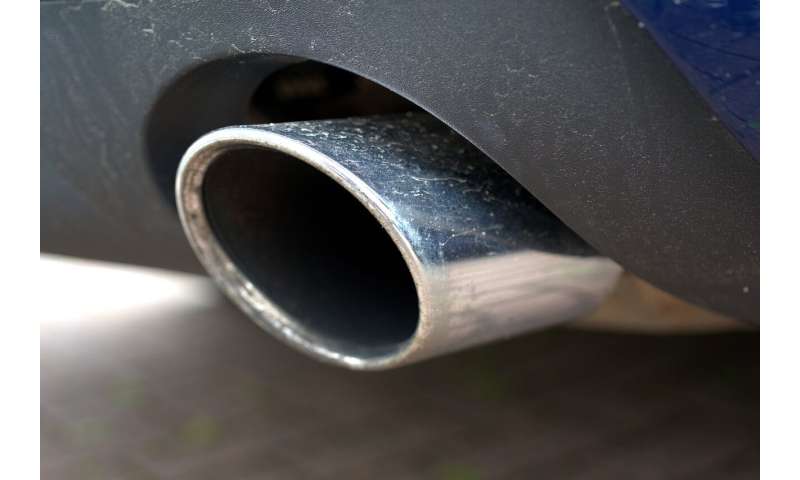
Credit: CC0 Public Domain
New automotive technology that promises enhanced fuel efficiency may have a serious downside, including significant climate and public health impacts, according to research from the University of Georgia College of Engineering.
The gasoline direct injection (GDI) engine is one of the most prominent technologies car manufacturers adopted to achieve the fuel economy and carbon dioxide emission goals established in 2012 by the U.S. Environmental Protection Agency. The market share of GDI-equipped vehicles increased from 2.3% in model year 2008 to 51% in model year 2018. The EPA projects 93% of vehicles in the U.S. will be equipped with GDI engines by 2025.
While this technology is credited with boosting fuel efficiency and reducing CO2 emissions, GDI engines produce more black carbon aerosols than traditional port fuel injection engines. A strong absorber of solar radiation, black carbon exhibits significant climate warming properties.
In a study published this month in the journal Environmental Science and Technology, a team of researchers at UGA predicts the increase in black carbon emissions from GDI-powered vehicles will fuel climate warming in urban areas of the U.S. that significantly exceeds the cooling associated with a reduction in CO2. In addition, they believe the shift will nearly double the premature mortality rate associated with vehicle emissions, from 855 deaths annually to 1,599. The researchers estimate the annual social cost of these premature deaths at $5.95 billion.
"Even though emissions from gasoline vehicles constitute a small fraction of the black carbon in the atmosphere, the vehicle emissions are concentrated in regions with high population densities, which magnifies their effect," said Rawad Saleh, an assistant professor in UGA's School of Environmental, Civil, Agricultural and Mechanical Engineering and the study's principal investigator.
The increase of black carbon is an unintended consequence of the shift to GDI-equipped vehicles that some scientists suspected was based on experimental data, according to Saleh. He says the UGA study is the first to place these experimental findings in a complex modeling framework to investigate the trade-off between CO2 reduction and an increase in black carbon.
While previous research has reported the shift to GDI engines will result in net benefits for the global climate, the UGA researchers say these benefits are rather small and can only be realized on timescales of decades. Meanwhile, the negative impact of black carbon can be felt instantaneously.
"Our research shows the climate trade-off is much different on the regional scale, especially in areas with high vehicle densities. In these regions, the climate burden induced by the increase in black carbon dominates over the climate benefits of the reduction in CO2," said Saleh. "The study concludes the social cost associated with the acute localized climate burden and public health impacts induced by GDI vehicles largely overweigh their marginal global climate benefits."
More information:
Soroush E. Neyestani et al, Direct Radiative Effect and Public Health Implications of Aerosol Emissions Associated with Shifting to Gasoline Direct Injection (GDI) Technologies in Light-Duty Vehicles in the United States, Environmental Science & Technology (2019). DOI: 10.1021/acs.est.9b04115
Citation:
Fuel efficient tech may threaten climate, public health (2020, January 23)
retrieved 23 January 2020
from https://phys.org/news/2020-01-fuel-efficient-tech-threaten-climate.html
This document is subject to copyright. Apart from any fair dealing for the purpose of private study or research, no
part may be reproduced without the written permission. The content is provided for information purposes only.
#Environment | https://sciencespies.com/environment/fuel-efficient-tech-may-threaten-climate-public-health/
No comments:
Post a Comment